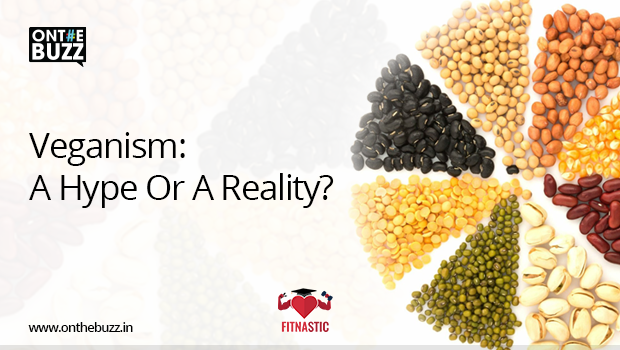Breaking the bubble by knowing about various plant-based protein sources.
There is a prominent misconception that plant-based proteins are lacking in protein content. However, this is not so. There are a lot of plant sources that act as pretty good protein sources and also have amazing health benefits. Firstly let us understand what a protein is and how is it absorbed in our body.
Protein is an essential component of the human body and is present in almost every part of the body, be it your muscles, hair, organs, enzymes, and even hormones. The body utilizes proteins to repair, build muscles, and synthesize hormones and enzymes. It is also equally important to know that protein is not stored in the body like carbohydrate is. Therefore a steady protein intake is necessary to meet your needs. Whatever food you eat, protein in your diet is essential. They comprise 20 amino acids, out of which our body can synthesize only 9. The rest of the 11 essential amino acids can only be taken through your diet. Now, to an important question, as to how much protein do you need in your everyday diet?
According to the Academy of Nutrition and Dietetics, it is recommended that an average person should consume 0.8g of protein per Kg of body weight. So for example, if an individual’s weight is around 75kgs, then that person should consume about 60 grams (0.8* 75) of protein on average. Now it would be untrue if we were to say that only the protein intake would lead to an increase in muscle mass. Muscle mass is only built if the net protein balance is positive; when muscle protein synthesis is more than muscle protein breakdown. And this has been observed to be the greatest while working out. So exercise and the diet have to go hand in hand for us to maintain our general health and well-being. Meat and animal-based protein sources have a high protein content and have almost all the remaining proteins available in them. But does everyone eat non-veg, or why is everyone shifting to being vegan and resorting to only plant-based proteins? So let’s address the elephant in the room, shall we?
Nowadays, the increasing demand for protein, increasing food safety concerns, ethics, growing environmental concerns, and awareness among consumers regarding the health benefits of plant-based foods, have led to increased interest in plant-based proteins. Use of the plant-based proteins in diets has a lot of health benefits. In addition to the building blocks for healthy muscles and tissues, plant proteins are also good for weight loss. This is also because these tend to be lower in calories compared to animal-based foods.
Furthermore, there is no proper answer to whether plant proteins are better than animal proteins, however, according to certain studies vegetarians tend to have lower body weight, blood pressure, and cholesterol. Because of this, people who eat plant-based foods are at a lower risk of stroke and heart disease. Moreover, the nutrients found in some plant-based foods are even related to a lower risk of certain cancers. These foods are also associated with improvement in bone and muscle health. Some plant-based diets are rich in nutrients such as potassium, vitamin K, C and studies also quote them to play an important role in muscle protein synthesis.
Some of the plant-based foods which are good protein sources are:
- Quinoa (4.4g per 100g)
- Green Peas (5.4g per 100g)
- Almonds (20g per 100g)
- Lentils (Cooked) (10.6g per 100g)
- Broccoli (2.8 g per 100g)
- Almond Butter (21g per 100g)
- Cashew Butter (18g per 100g)
- Peanut Butter (25g per 100g)
- Oatmeal (2.4g per 100g)
- Black Beans (8.9g per 100g)
- Chickpeas (19g per 100g)
- Watermelon Seeds (28.3g per 100g)
- Hemp Seeds (24.8g per 100g)
Another factor why people, in general, should resort to plant-based diets is because of environmental sustainability. So for example, we use plant sources to feed livestock. Instead, if we consume the plant sources directly, we can save a lot of resources required to raise the livestock, thus reducing pressure on the environment.
While it is true that plant-based proteins have a comparatively low protein content compared to animal sources, but a proper combination of plant-based protein foods in your everyday diet is key to nullify that difference. Also, it is equally important to understand that there are many studies that exhibit no benefits when you substitute animal-based proteins with plant-based proteins. In the end, what matters is a diet that is complete, which comprises of all nutrients, irrespective of it being from a plant source or animal source, thus leading to good health. So whether it’s a hype or a trend, it all depends on your choice to stay healthy & fit.
This blog is contributed by Fitnastic!
About Fitnastic: Fitnastic was founded in January 2020 with the aim to help individuals go through their fitness obstacles and transform them into stronger, fitter, and confident individuals. Rishi Nagar being the founder and Ojas Bhatt being the Co-Founder, believe in the ideology that exercise and nutrition are the utmost priority for healthy well-being.
At Fitnastic, they craft an individual’s well-being by not only providing customized diet plans and live training/training routines, but also provide conversations with doctors on various health issues, easy-to-make healthy recipes & also educate people by providing scientific knowledge about different dieting patterns, herbs, and physiological functions of the human system.
Because ‘Fitness’ is not a joke!
Follow Fitnastic for more updates on Health and Fitness:
Website: www.fitnasticindia.com
Instagram: Fitnastic.india
Facebook: Fitnastic.fitindia
LinkedIn: Fitnastic (Company)
Contact: +91-8209512559 / queries@fitnasticindia.com

